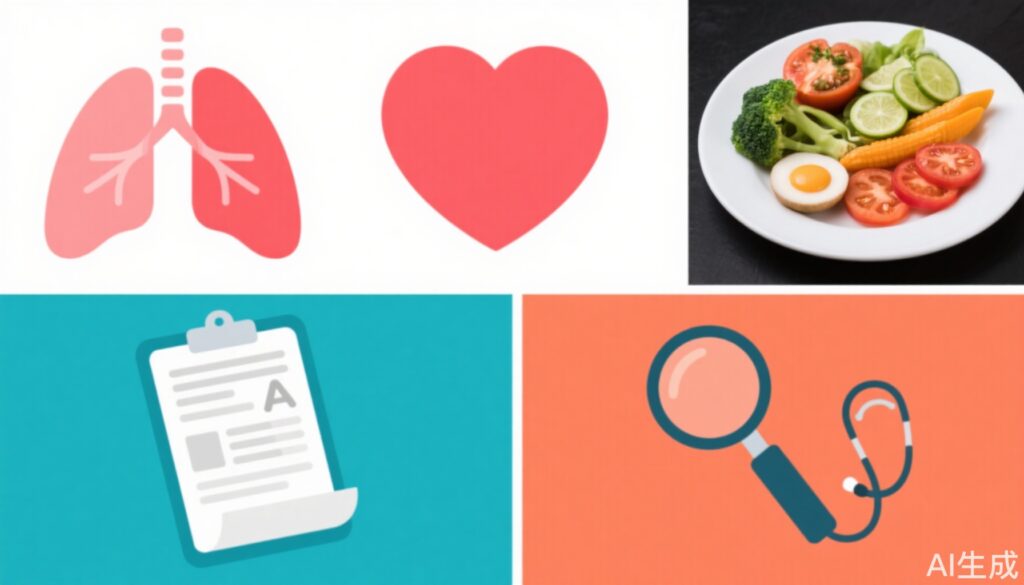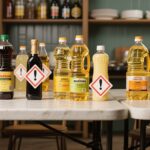Introduction
In today’s world, misconceptions about health and wellness are rampant. Many of these myths have been perpetuated for decades, often leading to confusion and even harm. This article aims to shed light on 12 prevalent health myths, providing evidence-based insights to help you make informed decisions.
Myth 1: Eating Raw Fish Gall Can Cure Diseases
Despite claims that consuming raw fish gall can clear heat and detoxify the body, scientific evidence shows that this practice is harmful and potentially fatal. Fish gall contains toxins like sodium sulfoacetate, histamine, and cyanide, which can damage organs like the liver and kidneys. Avoid this dangerous habit and seek professional medical advice for health concerns.
Myth 2: Gallstone Patients Should Eat Only Vegetarian Food
While high-fat diets can exacerbate gallstone issues, a completely vegetarian diet is not recommended. Fat is necessary for promoting bile secretion, essential for digestion. A balanced diet with low-fat and low-cholesterol options is ideal for gallstone management.
Myth 3: Holding Breath for 30 Seconds Tests Lung Health
The ability to hold your breath does not directly correlate to lung health. Comprehensive lung health assessments require professional tests, including pulmonary function tests, imaging studies, and physical evaluations.
Myth 4: Vegetarianism Helps Control Blood Lipids
A purely vegetarian diet might lack essential B vitamins necessary for lipid metabolism. For those with high cholesterol, a balanced diet with moderated intake of animal products and vegetables is recommended.
Myth 5: Pulling One Gray Hair Leads to Ten More
Gray hair appearance is determined by genetics and age. Pulling gray hair does not stimulate the growth of more gray hair, but excessive pulling can damage hair follicles, leading to potential baldness.
Myth 6: Prostatitis Is an Elderly Disease
Prostatitis is common among younger men, especially those under 50, due to active sexual health and exposure to infections. Proper hygiene and medical attention are crucial for prevention.
Myth 7: Lung Nodules Always Lead to Lung Cancer
Most lung nodules are benign. Regular monitoring and consultation with healthcare professionals are essential for determining the nature of nodules.
Myth 8: Intravenous Therapy Prevents Stroke in Winter
There is no evidence supporting the efficacy of intravenous therapy for stroke prevention. A healthy lifestyle, including regular exercise and balanced nutrition, is the proven method for reducing stroke risk.
Myth 9: Drinking Bone Broth Heals Fractures
Bone broth is rich in fat but lacks the calcium required for bone health. Supplements like Vitamin D and calcium, along with dairy products, are more effective for fracture recovery.
Myth 10: Daily Vaginal Washing Prevents Infections
Excessive washing can disrupt the natural pH balance and microbiome of the vagina, increasing the risk of infections. Gentle cleaning of the external genital area is sufficient.
Myth 11: Kidney Patients Should Eat Low-Sodium Salt
Low-sodium salt contains added potassium, which can be harmful to kidney patients susceptible to hyperkalemia. Reducing overall salt intake is a safer approach.
Myth 12: General Anesthesia Affects Intelligence
Modern anesthesia techniques are designed for safety and rapid clearance from the body. No evidence links general anesthesia to long-term cognitive impairment.
Conclusion
Understanding these myths and their scientific rebuttals empowers us to make better health choices. Always consult healthcare professionals for advice tailored to your individual needs.
References
1. National Institutes of Health – PubMed.
2. World Health Organization Health Guidelines.
3. Clinical studies on anesthesia and cognitive function.
4. Dietary recommendations for gallstone and lipid management.



